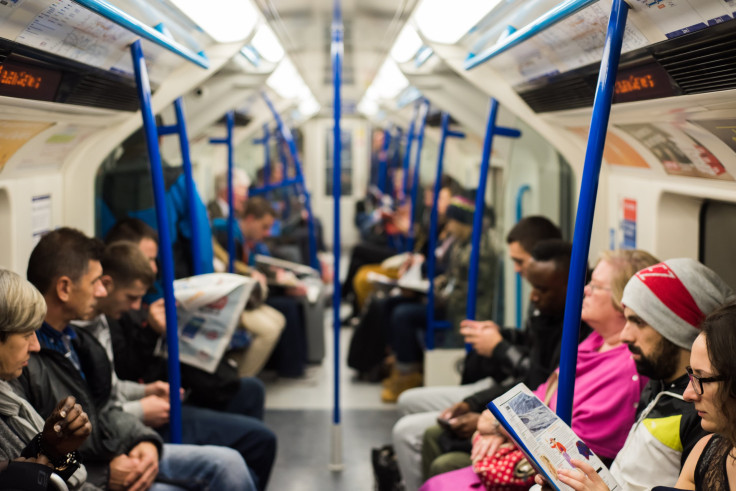A Long Commute To Work Leaves Little Time To Find Satisfaction With Life

The days of commuting from Queens, N.Y. to Manhattan's financial district are long gone now, but I can remember those endless train rides and cold walks as a time period to which I would prefer not to return.
My commute was necessary but painful. At first, I enjoyed riding the N train to its last stop. It left Manhattan, and dove underwater at 57th Street, then crossed into Queens and resurfaced above ground, bringing the dying light of dusk, birch trees, and sky through the windows. After it dropped us off at the last stop, I walked 10 blocks to my apartment — one way, an hour-and-a-half from work to home. But despite feeling relieved when I left Manhattan, I was unhappy. I was spending three hours a day on the train, transferring trains, or walking down that icy street in Queens back and forth to the train. Going to the gym meant either getting up at 6 a.m. or not getting home until 10 p.m. Most nights, I stayed home to avoid taking the train for another hour to meet friends back in Manhattan.
If you have a similarly lengthy commute that gets you down and fatigued, you’re not alone. A new study shows that a longer commute does indeed lower your life satisfaction. Published in World Leisure Journal, the research, which was conducted by the University of Waterloo, found that any type of long commute — whether you travel by subway or car — reduced people’s level of happiness and impaired their overall mental health.
“We found that the longer it takes someone to get to work, the lower their satisfaction with life in general,” said Margo Hilbrecht, a professor in applied health sciences at the University of Waterloo and the associate director of research for the Canadian Index of Wellbeing, in a press release.
The researchers found that commutes can often offer some positive things, like providing people time to unwind before or after work. Train riders don’t have to worry about being stuck in traffic or driving a car, and can often spend that time reading or listening to music. But the problem is having a time crunch, the researchers argue. “Some people may enjoy a commute, but overall, longer travel time is linked to feelings of time crunch, which can increase stress levels,” Hilbrecht said.
Past research has found that long commutes were linked to both poor mental and physical health, and have exacerbated or caused issues like hypertension, obesity, fatigue, and a lowered immune system (causing work absences). If you’re constantly on the go, and rarely have a moment to yourself, it’s easy to imagine that getting sick and feeling tired might be more likely.
But the major factor that caused lower life satisfaction was the lack of physical activity among people who had long commutes, the researchers found. “We learned that commuters who had time for physical leisure had higher life satisfaction,” Hilbrecht said. “Physical activity can mitigate commuting-related stress if workers can include it in their daily routines, but the obvious constraint is time scarcity. Longer commutes mean less time for other activities, which leads to lower life satisfaction.”
Research has shown that driving is the worst offender, because you’ll spend far less time walking than if you took the train or biked to work. One study found that women who commuted via train, biking, or other forms of transportation had a body mass index score 0.7 lower than that of women who drove to work every day. Both driving and working in an office are sedentary, which can increase your chances of obesity.
Ultimately, the authors concluded that employers should be aware of their employees’ commuting times, and allow for more flexible work hours to provide for exercise time. “The message to employers is that encouraging flexible work hours or providing time for physical leisure can pay dividends in their employees’ satisfaction with life,” Hilbrecht said.
Source: Hilbrecht M, Smale B, Mock S. Highway to health? Commute time and well-being among Canadian adults. World Leisure Journal. 2014.



























